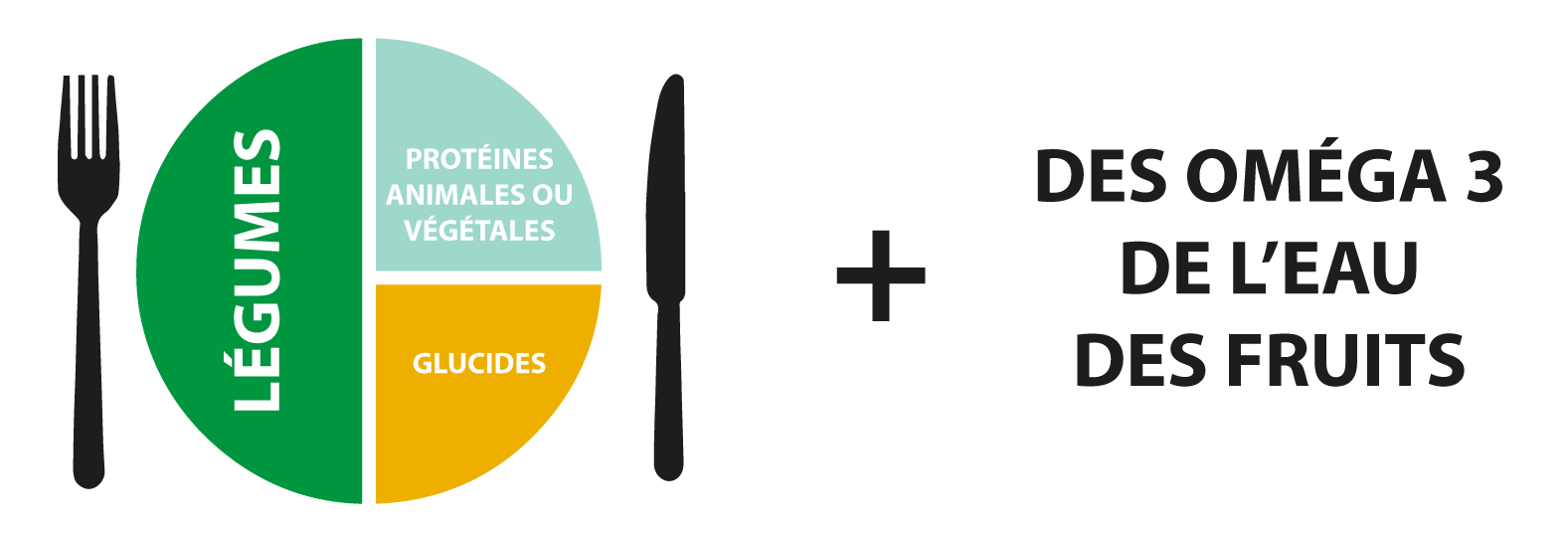Do you know that our body needs energy and useful materials for its growth, proper functioning and proper maintenance?
Do you also know that our body is able to manufacture almost everything it needs to be fit and healthy? Provided, of course, that it is given enough nutrients!

What are nutrients?
Nutrients, or nutrients, are substances provided by food and which ensure the development and maintenance of the body. There are several families:
- Macro-nutrients : lipids, proteins and carbohydrates.
- Micro-nutrients : vitamins, minerals and trace elements.
- Fibers.
- Water (our body is made up of approximately 65% water).

What are these nutrients for?
Each nutrient family will have a specific function for the body:
- Lipids (fats) : they will have several functions in the body. They constitute an energy reserve and will act as a thermal insulator to allow your body to maintain its temperature. Lipids also help the proper functioning of organs, allowing the synthesis of vitamin D and cholesterol. Some lipids are not made by the body, this is particularly the case with essential fatty acids. We must therefore bring them to our body through food. Omega 3, for example, can be provided by vegetable oils of rapeseed, flax, camelina or walnut.
- Proteins : there are two types: those of animal origin (meat, fish, eggs, dairy products) and those of vegetable origin (lentils, peas, chickpeas, red or white beans, tofu, seaweed). These proteins will form "bricks" for building and repairing our body: manufacturing and repairing muscles, bones and hair, manufacturing hormones, neurotransmitters, enzymes and antibodies and also providing energy.
- Carbohydrates (sugars) : Carbohydrates are primarily broken down into glucose and are our body's preferred source of energy. They also give fiber.
- Fibers : they are provided by plants and certain carbohydrates. They help the proper functioning of the digestive system and nourish the intestinal microbiota.

And what does it look like on the plate?
For a plate to be healthy and balanced, it must be provided with the right amount of vegetables, proteins (animal or vegetable) and carbohydrates. We must add to this the omega 3, essential for our proper functioning, fruit and, of course, water!

You can also add "super foods" to your diet to gain vitamins and minerals: pollen, sprouted seeds, spirulina, chlorella, goji berry,...

And the quality, we talk about it?
Of course, a healthy diet also means having as few additions as possible. It is therefore important to:
- Favor a diet of organic origin, since it will be less loaded with pesticides and richer in nutrients.
- Also favor a diet that is as unprocessed as possible and therefore avoid dishes prepared with the addition of preservatives, salt and sugar.
And the pleasure in all this?
We continue to treat ourselves by being careful of excesses of course!






 By Julie Van Paepeghem - Naturopathe
By Julie Van Paepeghem - Naturopathe